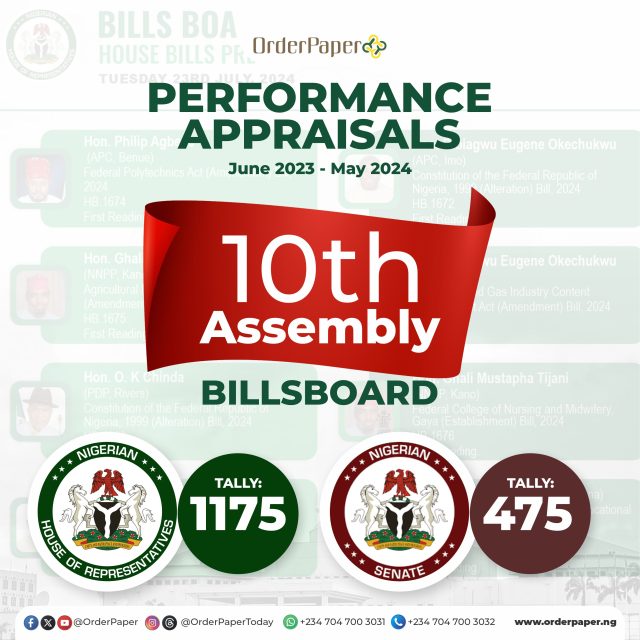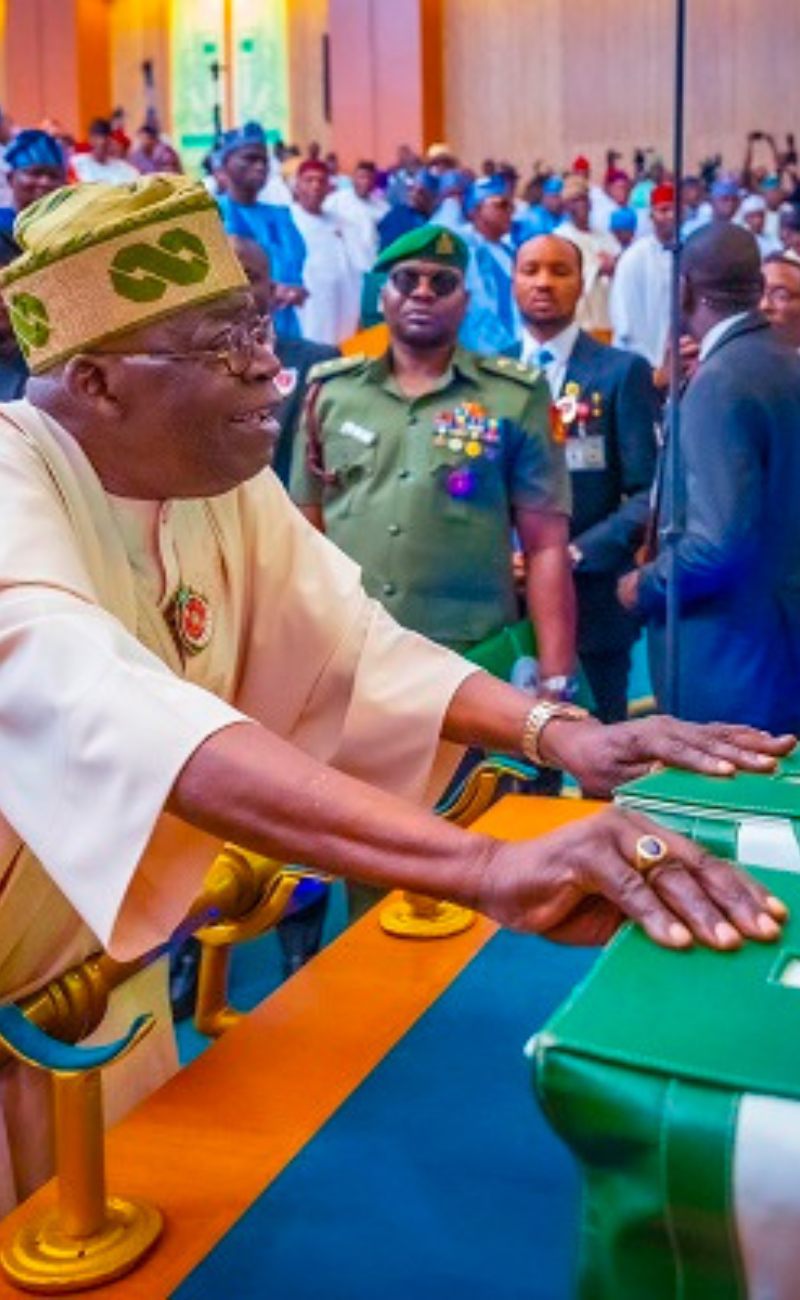As a niche signature effort, OrderPaper’s annual performance scorecard of members of the national assembly spotlight the critical journey of lawmaking from sponsorship of bills to eventual enactment by presidential assent, thereby revealing the true measure of lawmakers’ effectiveness and productivity.

OrderPaper’s signature annual appraisals have become a gold standard for evaluating the performance of the national assembly. Arguably, legislators should not be appraised only based on their contributions or lack thereof in lawmaking. While motions and committee oversight are other parameters to measure performance, it is incontrovertible that lawmaking by way of bills remains an integral duty of a performing legislator. For full effect, these appraisals are not just about the numbers—they offer an in-depth analysis of the lawmaking process by tracking the volume, value, impact, and progression of bills sponsored. This is because lawmaking requires diligence and consistent effort on the part of lawmakers to shepherd bills through the entire legislative stages to become laws.
Putting lawmakers’ feet to fire…
It is trite to say that the mandate by OrderPaper to appraise and publish the performance scorecard of lawmakers on an annual basis has not been without some pushback. Save for the fact that these appraisals are data-driven, objective and unimpeachable, the blowback from lawmakers and other vested interests would have put paid to what has been described as citizens’ oversight on the national assembly. While there have been futile attempts to impugn the integrity of the efforts, the legislature and individual lawmakers have been unable to resist some response when hard-pressed by the publication of the scorecards.
For example, during a plenary session on September 15, 2021, the Speaker of the 9th House of Representatives, Femi Gbajabiamila, criticised the media for using bill sponsorship as the sole metric for assessing legislators. This was shortly after the release of the 9th assembly midterm performance scorecard by OrderPaper, wherein data indicated that the volume and progression of bills were below par. The former speaker emphasised that lawmakers often contribute significantly through advocacy, committee work, and oversight. Despite this criticism, OrderPaper’s performance appraisals have continued to spark increased interest by the public.
Surge in volume: Clear impact of OrderPaper’s scorecard
Despite that criticism by Gbajabiamila at plenary of the house, individual lawmakers felt the fire on their feet and responded by pumping up the volume. Hence, by the third session of the 9th assembly, the volume of bills went up by 29% in the senate and 32.7% in the house of representatives. Clearly, OrderPaper’s performance appraisals influenced a surge in bill sponsorship by lawmakers. The data shows that the same effect has become evident in the first year of the 10th National Assembly: while 476 bills were sponsored in the senate between June 2023 and May 2024—up by 13.3% from the tally of 420 bills recorded in the 9th Senate in the same period under review; 1,175 bills were sponsored in the current house of representatives, reflecting a 37.7% rise compared to the 853 bills sponsored in the preceding assembly.
Bill progression is the real measure of performance
Despite the surge in the number of bills sponsored, the critical question remains: how many of these bills have made meaningful progress toward becoming laws? While the increase in bill sponsorship is a notable affirmation of the impact of OrderPaper’s no-mean work, the real measure of lawmakers’ performance lies in the progression of these bills through the legislative mill. Again, the data explains why: Out of 1,175 bills sponsored in the house, only 58 have been passed, with the majority still awaiting various stages of consideration, especially second reading. In the senate, only 19 out of 476 bills sponsored have been passed. This apparent discrepancy between bill sponsorship and progress highlights a critical gap in the lawmaking function: despite the high volume of bills, many fail to make meaningful progress, leading to wasted legislative resources.
Nigeria’s challenges demand more than window dressing
As Nigeria grapples with severe security and socio-economic challenges, the need for effective performance of the functions of the legislature has never been more urgent. The country’s dire circumstances highlight the importance of progressing bills that can activate essential reforms in national security, governance and electoral reforms, economic depression, and widespread public despondency. Bills must move beyond sponsorship to enactment if they are to address Nigeria’s pressing needs. This is why OrderPaper’s annual performance appraisals are crucial for promoting legislative accountability. While bill sponsorship is an essential aspect of a legislator’s role, the test of effectiveness is ensuring these bills progress through the legislative process to become impactful laws.
This is a clarion call on citizens to digest the carefully curated datasets in these appraisals and engage their senators and representatives in demanding that they dutifully perform the duties for which they have been elected into parliament.



